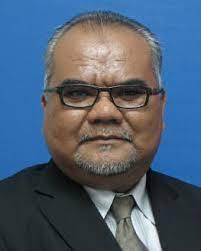As elaborated in my previous article, the question of an oversupply of accountants is baseless and should not be an issue.
Similarly, the quality of local accounting education is also more perceptual in nature and believed to be landscaped by some foreign professional bodies so as to strengthen their market base in Malaysia.
It seems to me, the real worry is the fact that local graduates in the market may surpass foreign professionals in the future. Existing practitioners seem to be more interested in protecting their turf rather than solving the nation’s problems.
It is undeniable that some local accounting graduates may have soft-skill problems, such as interpersonal and communication skills, especially when it comes to the English language. But these shortcomings are rectifiable, given adequate training and experience. Hence, it is unfair to judge them at job entry level.
In my opinion, in terms of technical knowledge, local graduates are as good as foreign-trained professionals. Comparatively, despite four years of tertiary studies as opposed to three years in most foreign countries such as the United Kingdom, local graduates’ knowledge is more thorough in taxation law, and local accounting and auditing standards.
Moreover, the fact that more than 75 per cent of them were employed within six months of graduating, as reflected in tracer studies conducted on accounting graduates of local public universities every year, indicates their worth. Of course, not all of them become Malaysian Institute of Accountants (MIA) members or work in audit firms, but that reflects their versatility.
The accounting or auditing industry has to bear some responsibility in making accounting careers more attractive.
They should be involved in training local graduates. Universities are not factories producing graduates only to meet certain demands of the industry, no matter how much they try to be market-driven, as the industry keeps on changing dynamically.
Audit firms, especially the big firms, should contribute back to the society. Today, the Big Four dominate the market for audit services in almost all sectors in Malaysia. They audit more than 75 per cent of Bursa Malaysia-listed companies.
At their headquarters in the United States or UK, these firms are involved in the education sector by contributing seed funds for chair professorships and grants for research activities.
They also participate and provide data for research in accounting. In Malaysia, however, their involvement is very minimal.
Accounting or auditing quality is not just about technical competencies. Ethics, and by extension auditor independence, are much more important than mere competencies. Recent corporate collapses in the US, such as Enron and WorldCom, demonstrate that even big accounting firms could be plunged into disaster.
The announcement of the establishment of a Professional Accounting Centre in Universiti Teknologi Mara by the prime minister at the recent tabling of the budget, and again in his opening speech at the 2014 MIA Conference on Nov 4, is a step in the right direction.
This centre should be given a mandate to train professional accountants and develop local qualifying examinations (QE).
Organising professional examination of foreign bodies should not be the main concern of the centre.
Given the acute shortage of accountants in Malaysia, the calls to impose QE on local graduates ought not be entertained, at least for the time being.
There are other methods of assessment that can be looked into. For example, local graduates that are interested in pursuing their career in accounting can be required to attend internships with audit firms. Perhaps the MIA Chartered Accountants Relevant Experience programme can be revived or put under the purview of the centre.
Once the desired number of professional accountants is achieved, local graduates can be gradually subjected to admission examinations.
However, future chartered accountants must possess a degree to be eligible for admission.
Many countries, such as Hong Kong, Australia, New Zealand and the US, require tertiary education as a point of entry.
In addition, members of foreign bodies should be asked to take QE. This is consistent with the ROSC (Report on the Observance of Standards and Codes) report.
MIA should endeavour to have equal footing when dealing with foreign bodies. Rather than being dictated by the big firms and foreign bodies, MIA must stand on its own. While foreign bodies had helped our profession since independence and the government recognises this by including them in Part 2, Schedule 1 of the Accountants Act, it is high time for us to cultivate our own breed of professional accountants.
We should have a mutual recognition agreement with foreign bodies. Any recognition of members of foreign bodies should be reciprocal. In fact, this has been spelled out in the act (Section 10d).
But, why should we recognise them if they do not recognise us?
And despite the historical baggage, we have to stand up, be heard and be counted if we want our country to be the hub of accounting education or professional training in the region.
In this respect, the appointment of MIA council members should exclude proxies of foreign bodies. After all, members of foreign bodies must become MIA members in order to practise.
Let their members nominate and vote in their representatives at the annual general meeting. The practice of giving the posts automatically by virtue of their position in foreign bodies is a disservice to national interest. This is more so if they hold strategic posts in MIA subcommittees.
Despite all these shortfalls, the suggestion by the chairman of the Committee for Strengthening Accounting Profession (CSAP) at the 2014 MIA forum to ensure inclusivity in the accounting profession is surely a relief. Let’s hope for more positive news when the CSAP report is released in a couple of weeks.
Published in New Straits Times - November 26, 2014





